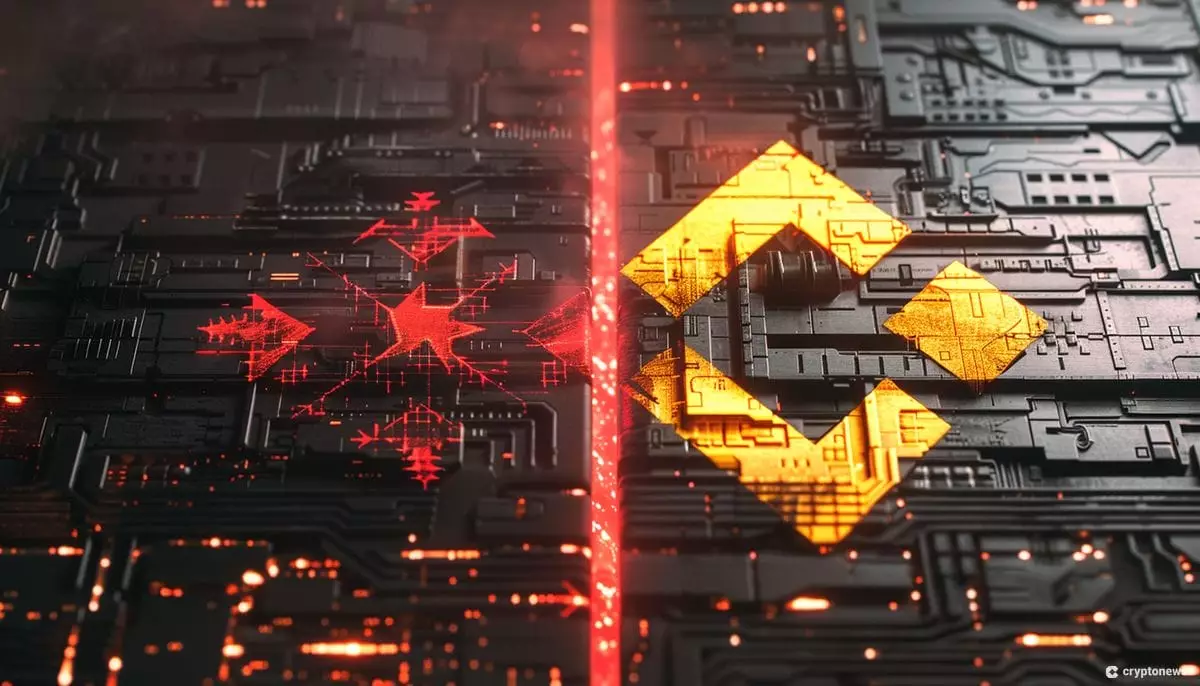In a recent announcement on April 4, Binance made the decision to suspend Bitcoin Ordinals trades and deposits starting from April 18, 2024. This move has raised concerns among holders of Bitcoin-based non-fungible tokens (NFTs) who are now advised to withdraw their assets from the trading platform’s NFT marketplace before May 18, 2024. While Binance did not provide a specific reason for the suspension, it mentioned that it aimed to “streamline product offerings” on its marketplace. This sudden change has left many community members surprised about the turn of events, especially considering the promising opportunities Binance had initially offered for collectors of Bitcoin Ordinals.
The decision to end support for Bitcoin Ordinals comes at a time when interests and trading activities in the overall NFTs market, including Bitcoin-based NFTs, are at multi-year lows. Data from non-fungible.com and Statista show a sharp decline in NFT sales across various blockchains, with Bitcoin Ordinals being no exception to this trend. The diminishing popularity of NFTs has been further exacerbated by concerns raised about their impact on the security of the Bitcoin network and the congestion they create. Luke Dashjr, a prominent Bitcoin Core developer, highlighted the adverse effects of Bitcoin NFTs on network clogs, increased fees, and potential vulnerabilities in the system, leading to a heated debate within the community.
Since the introduction of Bitcoin Ordinals, there has been a significant increase in inscriptions on the Bitcoin network, resulting in network congestion and higher transaction fees. Data from Dune Analytics reveal that over 64.17 million inscriptions have been recorded on the network, generating over $430.7 million in transaction fees. These figures underscore the challenges posed by the proliferation of NFTs and BRC-20 tokens on the Bitcoin blockchain, fueling discussions on the appropriateness of such activities within the network. Some experts argue that Bitcoin was originally designed for peer-to-peer financial transactions and may face similar issues to those experienced by the Ethereum chain, including scams, high fees, and congestion caused by non-financial data transactions.
The rise of Bitcoin Ordinals has sparked a debate within the cryptocurrency community regarding the balance between innovation and disruption. While some view NFTs as a positive force driving momentum and decentralization within the network, others are wary of the potential risks and drawbacks associated with their proliferation. The collaboration among Bitcoin developers to standardize BRC-20 tokens reflects the ongoing struggle to define the role of non-financial data transactions on the Bitcoin blockchain. As the industry grapples with these challenges, it becomes imperative to strike a balance between fostering innovation and maintaining the integrity and efficiency of the underlying blockchain technology.
Binance’s decision to suspend Bitcoin Ordinals trading highlights the evolving landscape of the NFT market and the broader impact of such activities on the cryptocurrency ecosystem. As stakeholders continue to navigate these complexities, it is essential to critically assess the implications of new technologies and trends on the sustainability and scalability of blockchain networks. Only through thoughtful analysis and informed decision-making can the industry address the challenges posed by emerging innovations while leveraging their potential benefits for the future of decentralized finance.


Leave a Reply